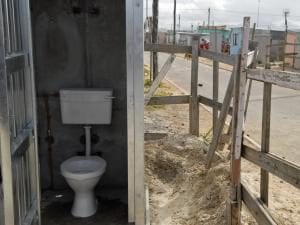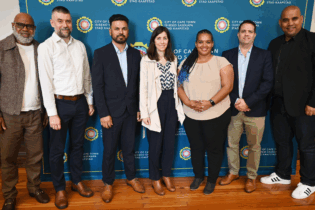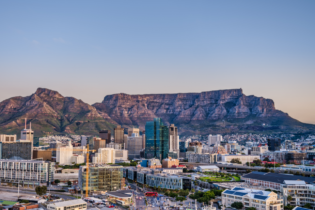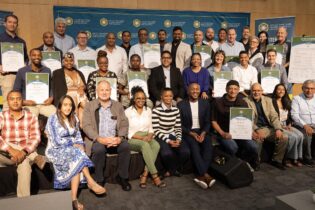The City of Cape Town may be dealing with numerous water challenges but against all odds it has managed to make the provision of sanitation a priority.
The City’s MMC for Informal Settlements, Water and Waste Services and Energy, Xanthea Limberg, says World Toilet Day is an opportunity to take stock of the City’s achievements in sanitation provision thus far and to redouble efforts to discover solutions to the challenges that constrain further sanitation rollouts in informal settlements. Limberg notes that the City has been recognised by National Government as providing the highest percentage of full-flush toilets and weekly refuse removal in the country, with around 93.8% of households in the city having access to a flush toilet.Still more to be done
“Still, there remains much work to be done in the face of ongoing population growth and increasing degrees of climate variability,” she explains.“Where we are able to do so, we always prefer to install full-flush toilets. But alternative solutions such as portable toilets must be explored too in areas where the installation of full-flush toilets is not possible,” she continues.“Portable toilets make access in these areas safer for the most vulnerable among us, like children and the elderly, and especially at night,”Limberg adds.
Waterborne sanitation unsustainable
As a City emerging from a severe drought Limberg notes that alternative sanitation solutions will be essential for future water resilience. “National Government’s masterplan document states that the provision of waterborne sanitation is unsustainable and South Africa must adopt waterless sanitation technology where appropriate,” she explains.Sanitation and water security linked
“Technology and thinking outside of the box, the creation of stronger partnerships with our communities, private-sector led programmes and projects for the wiser use of resources, are required for Cape Town, and indeed South Africa, as we continue to deal with rapid urbanisation,”Limberg points out.“Until such time as new innovation is taken up one cannot separate the concepts of sanitation and water security,” she adds.







